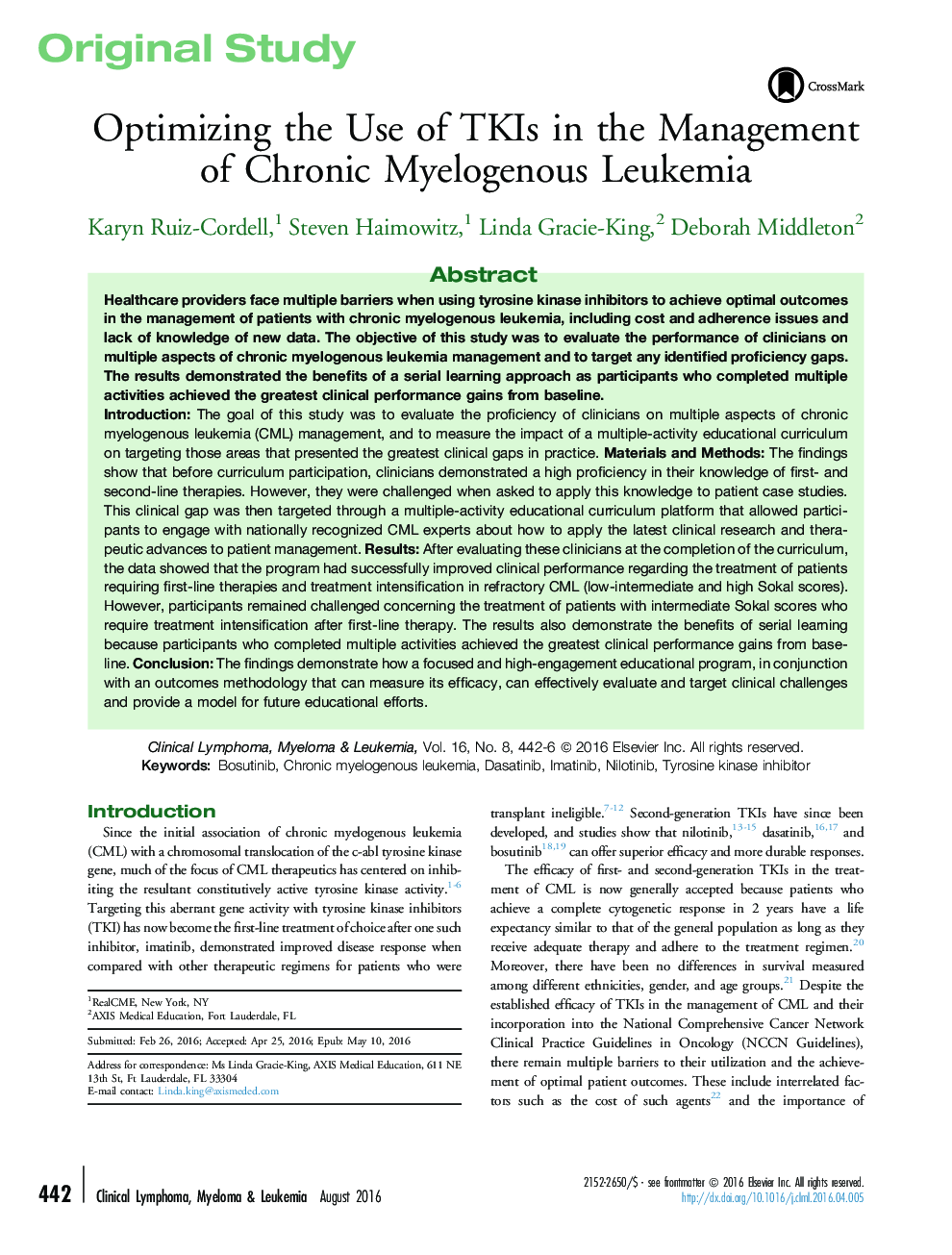| Article ID | Journal | Published Year | Pages | File Type |
|---|---|---|---|---|
| 2754223 | Clinical Lymphoma Myeloma and Leukemia | 2016 | 5 Pages |
IntroductionThe goal of this study was to evaluate the proficiency of clinicians on multiple aspects of chronic myelogenous leukemia (CML) management, and to measure the impact of a multiple-activity educational curriculum on targeting those areas that presented the greatest clinical gaps in practice.Materials and MethodsThe findings show that before curriculum participation, clinicians demonstrated a high proficiency in their knowledge of first- and second-line therapies. However, they were challenged when asked to apply this knowledge to patient case studies. This clinical gap was then targeted through a multiple-activity educational curriculum platform that allowed participants to engage with nationally recognized CML experts about how to apply the latest clinical research and therapeutic advances to patient management.ResultsAfter evaluating these clinicians at the completion of the curriculum, the data showed that the program had successfully improved clinical performance regarding the treatment of patients requiring first-line therapies and treatment intensification in refractory CML (low-intermediate and high Sokal scores). However, participants remained challenged concerning the treatment of patients with intermediate Sokal scores who require treatment intensification after first-line therapy. The results also demonstrate the benefits of serial learning because participants who completed multiple activities achieved the greatest clinical performance gains from baseline.ConclusionThe findings demonstrate how a focused and high-engagement educational program, in conjunction with an outcomes methodology that can measure its efficacy, can effectively evaluate and target clinical challenges and provide a model for future educational efforts.
